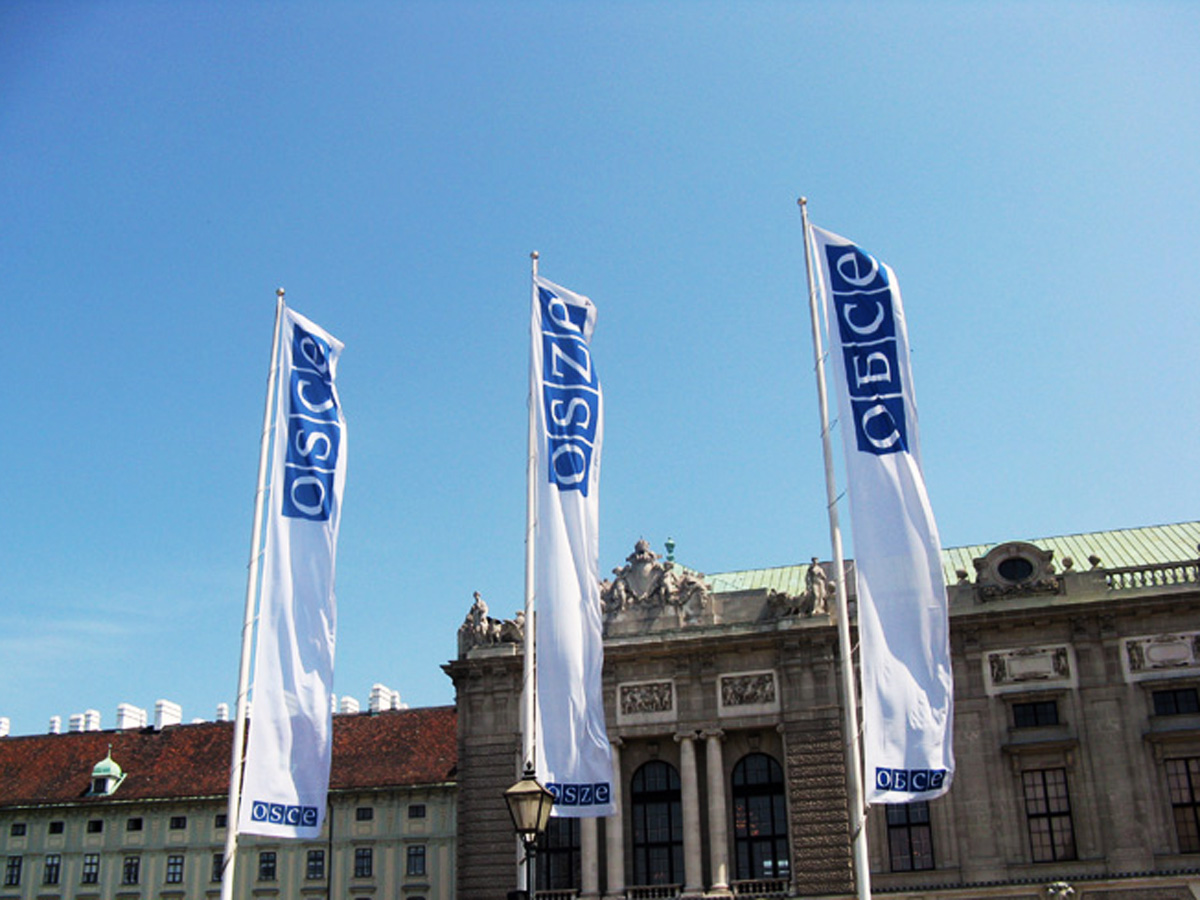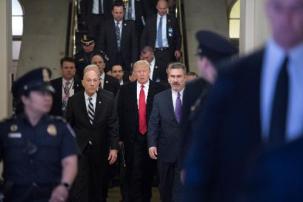
29 March 2017
Trend
The OSCE Minsk Group co-chairs, during their visit to the region, emphasized that respect for ceasefire is of utmost importance for building an atmosphere of trust to enable further negotiations on the Nagorno-Karabakh conflict.
A statement of the OSCE Minsk Group, released Mar. 29, said ambassadors Igor Popov of Russia, Stephane Visconti of France and Richard Hoagland of the US, together with Personal Representative of the OSCE Chairperson-in-Office, Ambassador Andrzej Kasprzyk, traveled to Baku (Mar. 11), Yerevan (Mar. 27) and Nagorno-Karabakh (Mar. 28).
“The main purpose of the co-chairs’ visits to the region was to receive the most current detailed political and military information on the line of contact and the Armenia-Azerbaijan border, to discuss the implementation of agreements reached at 2016 summits in Vienna and St. Petersburg and to address the next steps toward a settlement,” says the OSCE Minsk Group statement.
The co-chairs met with the presidents and foreign ministers of Azerbaijan and Armenia.
“They also visited territories around Nagorno-Karabakh. In their talks, the co-chairs reiterated their deep concern over recent incidents along the line of contact, calling on the sides to exercise restraint in their rhetoric and in their actions. The presidents laid out their positions on the co-chairs’ proposals to strengthen the ceasefire and to avoid further escalation of hostilities, particularly in light of the Novruz and Easter holidays. They expressed their commitment to continuing the negotiation process toward a political solution,” says the statement.
“In their talks, the co-chairs stressed the essential importance of continued support for Ambassador Kasprzyk’s mission and its expansion. The co-chairs also emphasized their conviction that respect for the ceasefire is of the utmost importance for building an atmosphere of trust to enable further negotiations,” the OSCE Minsk Group said.
The co-chairs will soon travel to Vienna to brief the members of the Minsk Group.
The conflict between the two South Caucasus countries began in 1988 when Armenia made territorial claims against Azerbaijan. As a result of the ensuing war, in 1992 Armenian armed forces occupied 20 percent of Azerbaijan, including the Nagorno-Karabakh region and seven surrounding districts.
The 1994 ceasefire agreement was followed by peace negotiations. Armenia has not yet implemented four UN Security Council resolutions on withdrawal of its armed forces from the Nagorno-Karabakh and the surrounding districts.
No comments yet.
- AZERBAIJAN AND UZBEKISTAN TO PRESENT NEW TRANSIT ROUTE Asia - Pacific 30.03.2017
-
 TRUMP TURNS AWAY FROM IRAQ’S COMING STORM
Iraq
30.03.2017
TRUMP TURNS AWAY FROM IRAQ’S COMING STORM
Iraq
30.03.2017
- CDU, SPD BUTT HEADS AND SHAKE HANDS IN ALL-NIGHT COALITION MEETING Europe - EU 30.03.2017
- GOVERNMENT DECIDES TO USE THE ARMY AND SECRET SERVICES IN THE FIGHT AGAINST NARCOTICS The Balkans 30.03.2017
- TURKEY WARNS BAGHDAD OVER PLAN TO RAISE KURDISH FLAG IN KIRKUK Iraq 30.03.2017
-
25.01.2016
THE ARMENIAN QUESTION - BASIC KNOWLEDGE AND DOCUMENTATION -
12.06.2024
THE TRUTH WILL OUT -
27.03.2023
RADİKAL ERMENİ UNSURLARCA GERÇEKLEŞTİRİLEN MEZALİMLER VE VANDALİZM -
17.03.2023
PATRIOTISM PERVERTED -
23.02.2023
MEN ARE LIKE THAT -
03.02.2023
BAKÜ-TİFLİS-CEYHAN BORU HATTININ YAŞANAN TARİHİ -
16.12.2022
INTERNATIONAL SCHOLARS ON THE EVENTS OF 1915 -
07.12.2022
FAKE PHOTOS AND THE ARMENIAN PROPAGANDA -
07.12.2022
ERMENİ PROPAGANDASI VE SAHTE RESİMLER -
01.01.2022
A Letter From Japan - Strategically Mum: The Silence of the Armenians -
01.01.2022
Japonya'dan Bir Mektup - Stratejik Suskunluk: Ermenilerin Sessizliği -
03.06.2020
Anastas Mikoyan: Confessions of an Armenian Bolshevik -
08.04.2020
Sovyet Sonrası Ukrayna’da Devlet, Toplum ve Siyaset - Değişen Dinamikler, Dönüşen Kimlikler -
12.06.2018
Ermeni Sorunuyla İlgili İngiliz Belgeleri (1912-1923) - British Documents on Armenian Question (1912-1923) -
02.12.2016
Turkish-Russian Academics: A Historical Study on the Caucasus -
01.07.2016
Gürcistan'daki Müslüman Topluluklar: Azınlık Hakları, Kimlik, Siyaset -
10.03.2016
Armenian Diaspora: Diaspora, State and the Imagination of the Republic of Armenia -
24.01.2016
ERMENİ SORUNU - TEMEL BİLGİ VE BELGELER (2. BASKI)
-
AVİM Conference Hall 24.01.2023
CONFERENCE TITLED “HUNGARY’S PERSPECTIVES ON THE TURKIC WORLD"









